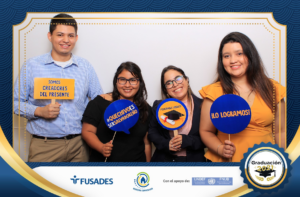Lesson Learned: The project was conceived as a comprehensive capacity development project with an approach involving participants into the development of replication strategies and the development of common actions and strategies in traditional and non-traditional communication spaces. However, during its implementation, the project has mainly been an academic endeavour, with a rather classic approach to capacity development methodologies and systems. In this project, as designed, the components of socialisation by the students as well as the engagement with public authorities should have remained a priority, and practical, on-the-job training approaches should have been privileged as originally foreseen. If these practical aspects are not considered a priority, a more standardized approach to capacity development should be followed at the project design stage.
 UDF-17-783-ELS
UDF-17-783-ELS